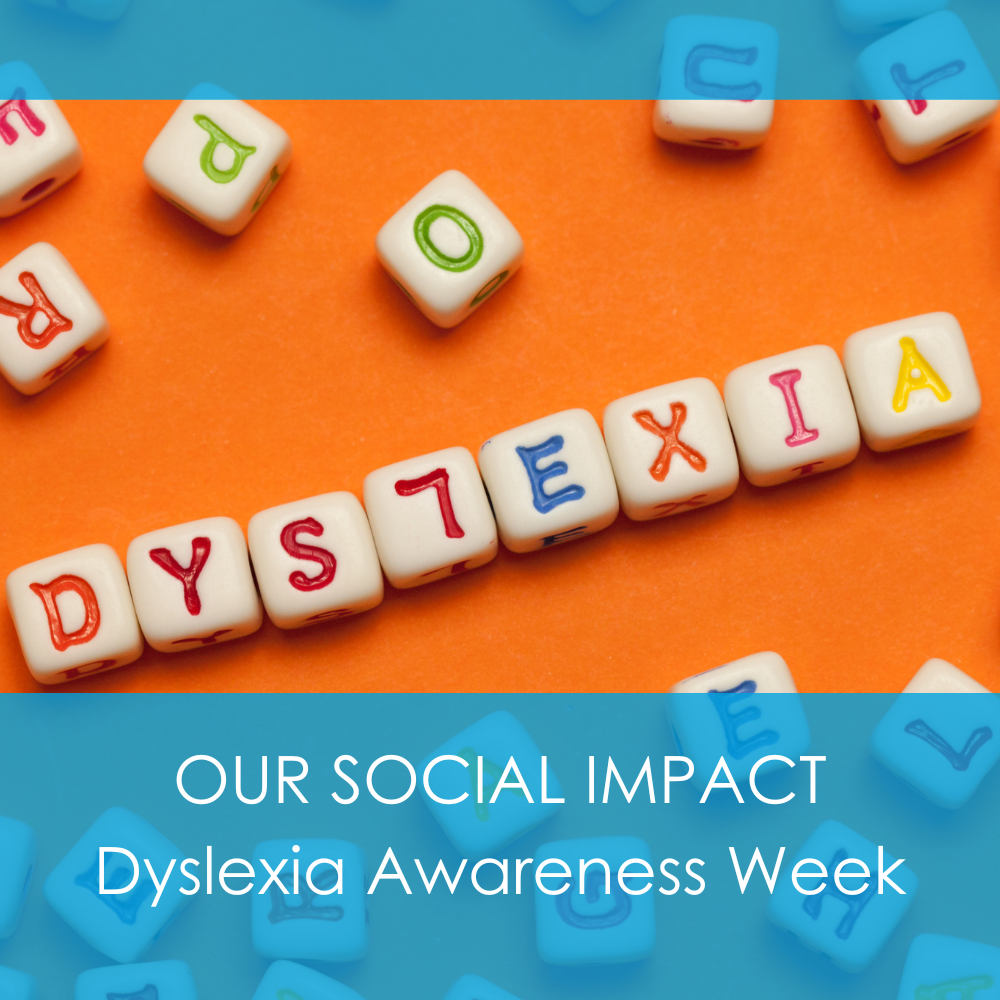This week (3rd to 9th October) marks Dyslexia Awareness Week.
The Restart Scheme helps people build confidence, skills, and the ability to move back into work.
According to the British Dyslexic Association (BDA), “Dyslexia influences at least 1 in 10 people and is a genetic difference in an individual’s ability to learn and process information. Over 6 million individuals in the UK have dyslexia and may not have received a diagnosis.”1
Many Restart participants living with dyslexia arrive on the scheme viewing their neurodiversity as a barrier to using digital devices. They have often experienced a lack of support and understanding throughout their life and are unaware of the technological advancements that can assist them.
Cosmic works with these participants in one-to-one sessions and small group workshops to teach them how to use accessibility settings and applications on their devices, so they can communicate in a way that works for them.
Historically, digital technology has not provided adequate support and accessibility to a wide range of disabilities, neurodiversity and learning styles. However, this landscape is evolving at a vast rate, particularly since the widespread use of laptops, smartphones and tablets has increased the number of people with access to devices with cameras and microphones.
The majority of new Android and iOS devices have dedicated Screen Readers off-the-shelf. Those finding reading difficult can utilise Text-to-Speech (TTS) software to read web pages, emails, and messages aloud. The in-built keyboards all have a simple way of activating the microphone for dictating with Speech-to-Text (STT) technology.
Spell-checking and predictive text software are also present across most mobile devices. When writing in word processing software such as Microsoft Word, these now have robust dictation features, regardless of whether being used in the mobile app, desktop, or web browser versions.
For laptops and PCs, web browsers have a variety of extensions that can be added to provide support for dyslexia.
Three of the best extensions that we recommend to our Restart Scheme participants are:
- Natural Reader2 – a screen reader that can read from any website, with a variety of voices available in the free version.
- Voice In Voice Typing3 – dictation software, usable on many popular sites for free.
- OpenDyslexic4 – changes the font displayed on any web page to a specially designed Dyslexic-friendly font.
If you know someone with dyslexia that could benefit from these tools, we would love it if you could share this with them.
We are hopeful that digital devices will continue to expand support for dyslexia and the whole spectrum of neurodiversity in the future.

